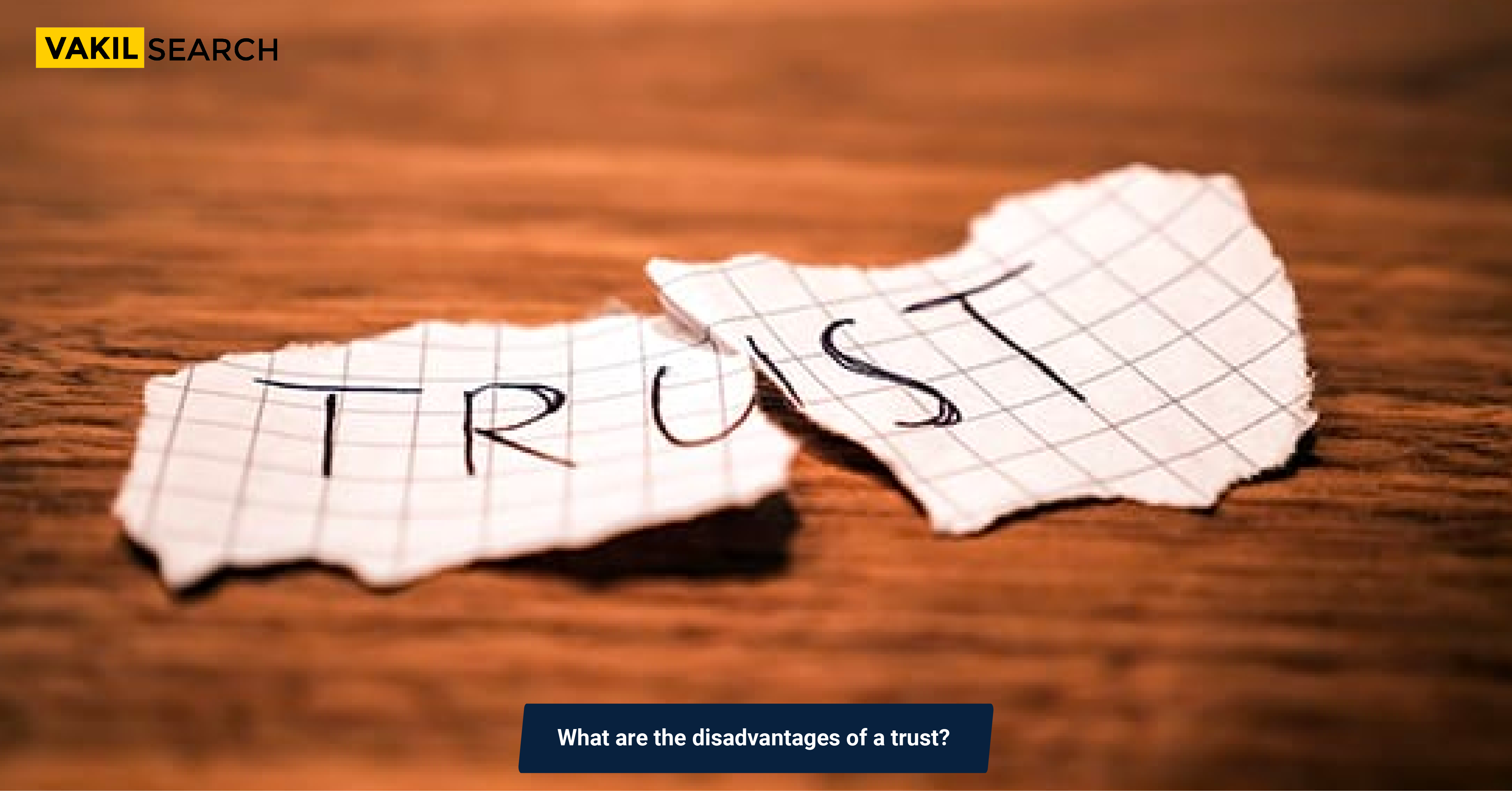Trusts can be a valuable estate planning tool in India, but they have disadvantages. This article discusses the most common disadvantages of trusts in India, such as their irrevocable nature, the loss of control over assets, the cost, the tax implications, the lack of transparency, and the potential for abuse. It also provides tips on how to minimise the disadvantages of trust and when to consider creating trust.
What Are the Disadvantages of a Trust in India?
Trusts are legal arrangements in which assets are transferred to a trustee to be held and managed for the benefit of beneficiaries. Trusts can be used for a variety of purposes, such as estate planning, asset protection, and tax planning. However, there are also some disadvantages of trusts in India.
Disadvantages of Trusts in India
Irrevocable Nature
One of the main disadvantages of trusts in India is that they are generally irrevocable. This means that once a trust has been created, it cannot be easily changed or revoked. This can be a problem if there is a change in circumstances, such as a divorce or the death of a beneficiary.
Loss of Control Over Assets
When you create a trust, you give up control over the assets that you transfer to the trust. This can be a difficult thing to do, especially if you are used to being in control of your finances. It is important to choose a trustee whom you trust to manage the assets wisely and in accordance with your wishes.
Cost
Creating and managing a trust can be expensive. There are legal fees associated with drafting the trust deed, and there may also be ongoing fees for trustee services. The cost of a trust will vary depending on the size and complexity of the trust.
Tax Implications
The tax implications of trusts in India can be complex. In some cases, trusts may be subject to double taxation. It is important to consult with a tax advisor to understand the tax implications of creating a trust.
Lack of Transparency
Trusts are private arrangements, so there is a lack of transparency in terms of how the assets are managed and how the funds are distributed to the beneficiaries. This can lead to disputes among the beneficiaries, especially if they are not kept informed about the trust’s activities.
Potential for Abuse
There is always the potential for abuse when it comes to trust. For example, the trustee may misuse the trust assets, or they may not distribute the funds to the beneficiaries in accordance with the terms of the trust deed. It is important to choose a trustee who is trustworthy and who has a good track record.
Complexities of Indian Law
Indian trust law is complex, and there are many different types of trusts available. It is important to consult with a qualified estate planning attorney to choose the right type of trust for your needs and to ensure that the trust is drafted correctly.
When to Consider a Trust
Despite the disadvantages, there are also many benefits to trusts. Trusts can be used to:
- Protect assets from creditors and lawsuits
- Reduce estate taxes
- Provide for minor children or incapacitated adults
- Manage assets for beneficiaries who are not financially responsible
- Ensure that assets are distributed according to your wishes after death
How to Minimise the Disadvantages of Trusts in India
There are a few things that you can do to minimise the disadvantages of trusts in India:
- Choose a trustee who is trustworthy and who has a good track record.
- Have the trust deed drafted by a qualified estate planning attorney.
- Keep the beneficiaries informed about the trust’s activities and provide them with regular accountings.
- Consider creating a revocable trust instead of an irrevocable trust.
- Get in touch with Vakilsearch now!
There are a few other things to keep in mind when considering a trust in India:
- Stamp duty: The transfer of assets to a trust may be subject to stamp duty. The amount of stamp duty will vary depending on the state in which the trust is created and the value of the assets being transferred.
- Registration: Trusts are not required to be registered in India, but it is advisable to do so. This will help to protect the assets of the trust and make it more difficult for them to be challenged by creditors or other third parties.
- Foreign trusts: If you are considering creating a foreign trust, it is important to understand the tax implications and the foreign exchange rules that apply. It is advisable to consult with a qualified tax advisor and a foreign exchange expert before creating a foreign trust.
Conclusion
Trusts can be a valuable estate planning tool, but they are not without their disadvantages. It is important to weigh the pros and cons carefully before deciding whether or not to create a trust. Get in touch with our estate planning officer at Vakilsearch today!
Read More:
- Pros and Cons of Setting up a Trust
- Main Differences Between a Will and Trust
- Difference Between Revocable and Irrevocable Trust?




